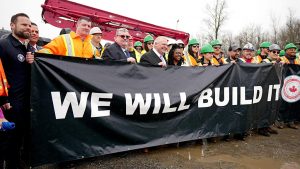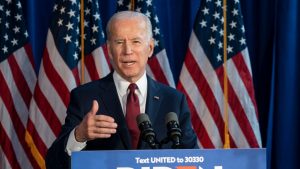The Ontario Chamber of Commerce has published a paper directed at each of Ontario’s new government ministers with suggestions for policy initiatives aimed at reinforcing a pro-growth agenda.
The “blueprint” calls for Minister of Energy, Northern Development and Mines Greg Rickford to build permanent roads and other infrastructure to kickstart the Ring of Fire and urges new Minister of the Environment Rod Phillips to ensure any new carbon policies do not hinder the competitiveness of Ontario businesses.
The chamber also suggests Minister of Training, Colleges and Universities Merrilee Fullerton should reform the Ontario College of Trades to implement the Tony Dean review or else scrap the College entirely, and recommends Minister of Labour Laurie Scott undo the “vast majority” of labour reforms implemented in Bill 148.
Ontario Chamber president and CEO Rocco Rossi said the association had a lot of dialogue with the Progressive Conservatives when they were in opposition and so the recommendations contained in the blueprint were not “out of the blue” but rather part of an “iterative” process.
“These are many themes we have been banging the drum on for some time,” said Rossi.
“We are optimistic because Premier (Doug) Ford repeated very often during the election campaign he wanted to signal that Ontario is open for business so we take him at his word and we are trying to put our best ideas forward in terms of how we might achieve that.”
We have a skills crisis in Ontario that is compounded by things like the apprenticeship ratios in the College of Trades
— Rocco Rossi
Ontario Chamber of Commerce
The document said the most powerful tool the province has to encourage business competitiveness is “reducing red tape.”
“They have designated a special deputy minister, Giles Gherson, who is one of the most able of the entire lot, which are all professionals, to head that up, which we take as a great first step,” Rossi commented.
The government is urged to complete the $12.8-billion Darlington Nuclear Generating Station Refurbishment project and move forward with the Bruce Power Life-Extension Project.
Among Infrastructure Minister Monte McNaughton’s priorities should be construction of adaptable and resilient infrastructure and reaffirmation of the use of asset management planning, the latter said to be “the optimal means of assessing and addressing infrastructure needs,” the paper noted.
The chamber calls on the province to study the best practices of Infrastructure Ontario, with its successful model for assessing project suitability using alternative funding and procurement, and translate the model into strategic procurement for smaller-scale projects.
The dismantling of the “rushed and flawed” Bill 148 reforms contained in the Employment Standards Act and the Labour Relations Act should be undertaken in tandem with a pause in raising the minimum wage to $15 per hour, it was suggested to the labour minister.
“In Wynne’s final days, they jammed in Bill 148 at the end of a mandate with very little consultation and fact-based decision-making and quite frankly rhetoric from some members which was decidedly anti-business,” said Rossi.
Scott and Fullerton were urged to revise the existing journeyperson-to-apprentice ratio regime in Ontario to ensure businesses have flexibility and to address the need for skilled tradespeople in Ontario.
The College of Trades is too preoccupied with enforcement, the paper argued.
“We have a skills crisis in Ontario that is compounded by things like the apprenticeship ratios in the College of Trades,” said Rossi. “It is not just a College of Trades issue, it is a broader issue that will require partnership between government, business, labour and educational institutions.”
Minister of Municipal Affairs and Housing Steve Clark was encouraged to strengthen the new Local Planning Appeal Tribunal to reintroduce some of the powers its predecessor, the Ontario Municipal Board (OMB), had, thus ensuring municipal planning decisions do not have an “outsized impact on the implementation of provincial growth plans.”
Commented Rossi, “The reality is, most councillors and city councils love having the OMB because it allowed councillors to go up on their soapbox and say we are opposed to this development and support local constituents, knowing it would then be referred to the OMB and there would be some accommodation made because we need more density and we need intensification if we are going to deal with increases in population and still protect greenspace.”
The blueprint urged Minister of Transportation John Yakabuski to develop a long-range transportation plan with a 30- to 50-year lens that would include a multi-modal strategy for rail and airports, a financing plan for transportation improvement projects and better connections between regions and trade corridors.
Rossi said the chamber did not identify special transportation projects as priorities “because one of our foundational issues is that we have a fact-based discussion. Transportation infrastructure is not an engineering question, it is a land-use-planning question. It is where are we going to be putting our people, putting our employment lands.”











Recent Comments
comments for this post are closed